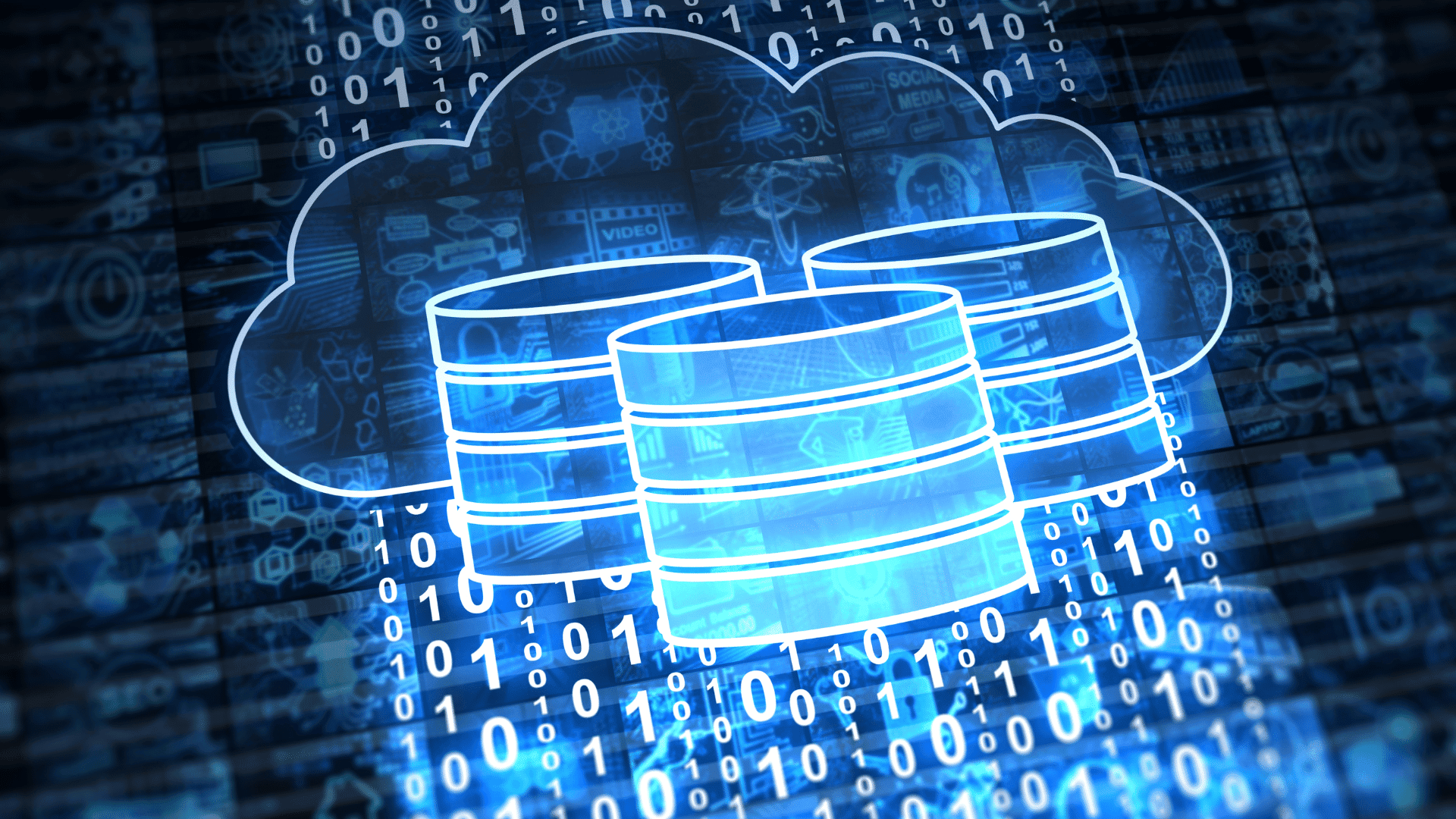What is a private cloud
Have you ever wondered about how private cloud works? It actually refers to a cloud computing environment that is dedicated exclusively to a single organization. Unlike the public cloud, where computing resources are shared by multiple users and organizations, the private cloud provides computing, storage and networking resources that are used exclusively by a single entity.
Are you tired of managing your own data center infrastructure? Are you looking to move your data and applications to the cloud, but not sure whether to choose a private or public cloud? In this post we’ll talk about public or private cloud cost, the evolution of data centers to the cloud, scalability in the data center cloud, hybrid cloud deployments and how they affect workload management. We will also explore how cloud computing is transforming applications with analytics to gain better data insights and integrate with IoT devices.
In the private cloud and data center services arena, there are several well-known companies that provide solutions for businesses and organizations that want to maintain greater control over their computing resources. Some of the most recognized companies in this space include:
- VMware: VMware is known for their virtualization and cloud computing solutions. They offer products such as VMware vSphere, which enables server virtualization, and VMware Cloud Foundation, which facilitates the implementation of a hybrid cloud infrastructure.
- Microsoft: In addition to offering public cloud services through Azure, Microsoft also provides solutions for private cloud deployment. With products such as Windows Server and System Center, organizations can build and manage private cloud environments.
- DataTrust Cloud: Offers public, private or hybrid cloud services in El Salvador. It has its own Tier 3 infrastructure.
- Dell Technologies: Dell Technologies offers comprehensive solutions for datacenters, including servers, storage, networking and software. VMware, which is part of Dell Technologies, plays an important role in offering private cloud solutions.
- Hewlett Packard Enterprise (HPE): HPE provides a wide range of data center solutions, including servers, storage and networking. HPE also offers private cloud solutions through its HPE GreenLake platform.
- Cisco: Cisco is known for its solutions for datacenters, including servers, storage and networking.
- IBM: IBM Cloud Private is a private cloud offering that enables organizations to deploy and manage applications in on-premises environments. IBM also provides services for managing hybrid cloud infrastructures.
- Nutanix: Nutanix offers hyper-converged infrastructure solutions that integrate storage, compute and virtualization on a single platform. This facilitates the creation of efficient private cloud environments.
It is important to note that the choice of a private cloud solution will depend on the specific requirements of each organization, such as size, performance needs and technology preferences. Many companies also opt for hybrid cloud solutions that combine public and private cloud elements for additional flexibility.
What is the public cloud?
Public cloud in a data center refers to cloud computing infrastructure that is hosted and managed by a service provider rather than located on an organization’s premises. In this context, a data center is a data center that houses servers, storage, networks and other IT resources needed to run applications and services.
When we talk about “public cloud”, we are referring to the provision of computing services over the Internet by specialized providers. These providers manage and maintain the underlying infrastructure, allowing users to access the cloud’s resources and services.
Examples of public cloud service providers include Amazon Web Services (AWS), Microsoft Azure, Google Cloud Platform (GCP) and IBM Cloud and the DataTrust Cloud These providers offer a wide range of services ranging from simple storage to high-performance computing and advanced artificial intelligence solutions.

What is cloud computing or cloud computing?
Cloud computing involves accessing computing services, such as storage and software, over the Internet. This allows for greater flexibility, scalability and cost-effectiveness. Leading providers include Amazon Web Services, Microsoft Azure and Google Cloud Platform.
What cost savings can be achieved by moving certain operations to a public cloud in a hybrid cloud architecture?
By moving certain operations to a public cloud within a hybrid cloud architecture, an organization can reduce costs by minimizing the need for extensive on-premises infrastructure and maintenance associated with a private cloud. This cost reduction is achieved by leveraging the infrastructure and resources provided by the public cloud provider in place.
How can a hybrid cloud help an enterprise meet peak demand and handle surges in workload?
An enterprise can use a hybrid cloud to meet peak demand by running most processes in a private cloud and using a public cloud for additional computing power during workload surges. This strategy, known as cloud bursting, enables seamless scalability and efficient handling of peak workloads.
How does a hybrid cloud architecture provide backups and avoid service interruptions in the event of a cloud failure?
In the event of a cloud failure, a hybrid cloud architecture provides backup and avoids service disruptions by relying on the other cloud’s implementation. If one cloud experiences a failure, the organization can rely on the other cloud to ensure service continuity, acting as a redundancy measure.
What advantage does the public cloud offer in terms of including technology that may not be feasible in a private cloud?
A public cloud allows the inclusion of technology that may not have a practical implementation in a private cloud, such as processing large amounts of data. This wide range of technology capabilities can be leveraged by using a public cloud within a hybrid cloud architecture.
How does a hybrid cloud make it easier to transition to a different style of cloud deployment?
A hybrid cloud makes it easier for a company to switch to a public cloud deployment by having processes or data already stored in the public cloud. This flexibility allows for a smoother transition.
Private cloud vs. public cloud or public cloud vs. private cloud
Private cloud computing ensures greater control and customization options, while public cloud services offer more cost-effective and scalable solutions.
The public cloud can have a higher risk of data breaches, while the private cloud requires more expertise to manage. As data centers transition to cloud computing, organizations are faced with the decision of choosing between private and public clouds. The private cloud solution offers more control and customization options, making it an excellent choice for organizations that have specific needs and stringent security requirements.
In the contrary, public cloud services provide cost-effective and scalable solutions that are ideal for companies looking to rapidly expand or scale down their IT capabilities. Private clouds require more expertise to manage and can incur higher costs due to the need for specialized IT staff. The transition from traditional data centers to modern data center cloud solutions has greatly increased agility, scalability and efficiency in IT infrastructure management.
Private cloud infrastructure provides greater control and customization options, while public cloud is a more cost-effective option for organizations. A hybrid cloud environment combines the benefits of private and public clouds.
Evolution from data center to cloud
The transition from traditional data centers to modern data center cloud solutions has greatly increased the agility, scalability and efficiency in managing IT infrastructure. Private cloud infrastructure provides greater control and customization options, while public cloud is a more cost-effective option for organizations. A hybrid cloud environment combines the benefits of private and public clouds.

Cloud and data centers
Cloud computing has transformed IT infrastructure management for enterprises. Public and private cloud services meet different requirements in terms of control, scalability and security. Public clouds offer cost-effective solutions, while private clouds offer greater customization options and data security.
Data centers serve as the foundation for cloud services, allowing organizations to choose from hybrid cloud solutions that combine public and private clouds for a customized approach to their IT needs.
Scalability in the data center cloud
The ability of a data center cloud to expand or contract resources on demand is crucial for modern IT infrastructures. While private clouds provide greater control and choice, the ability to scale up or down on demand is critical to modern IT infrastructures.
When deciding between private and public clouds, it’s important to consider your organization’s specific needs and budget. Are you looking for more control over your data and systems? Or are you prioritizing scalability and cost-effectiveness? It is important to weigh the pros and cons of each option before making a decision.
Another factor to consider is hybrid cloud computing, which combines elements of private and public clouds. This allows organizations to enjoy the benefits of both solutions while addressing the drawbacks. Hybrid cloud computing can provide greater flexibility and cost-effectiveness without sacrificing security or customization options.
Ultimately, the choice between private, public or hybrid cloud will depend on your organization’s unique needs and goals.As data centers continue to move toward cloud computing, it is important to carefully evaluate your options and choose the one that best suits your business.Always prioritize security, scalability and cost-effectiveness when making your decision, and don’t hesitate to consult with DataTrust if necessary.
With the right solution, you can ensure that your data center cloud is efficient, secure and customized to meet your organization’s needs.
Workload Management
To effectively manage workloads in the data center cloud, enterprises must consider their specific needs, scalability requirements and control preferences.
Private clouds provide complete control over data and applications, while public clouds offer the agility to scale on demand. The best choice depends on a company’s priorities with respect to scalability, resource usage, costs and governance.
Automation
Efficient cloud environments depend on automation, a key feature of private and public cloud solutions. Custom automation options are available for private clouds, while prebuilt tools help rapid deployment in public clouds. Streamlining processes is possible with automation, an essential aspect of modern data centers and their use.

API integration
Robust API integration plays a crucial role in the choice between private and public clouds for data center cloud services.
Private clouds offer better control over API integration, while public clouds come with pre-built APIs that are easily integrated into enterprise applications. Efficient use of APIs improves scalability and efficiency, while providing expert support for enterprises in the modern data center.
Hybrid cloud deployments
Combining the advantages of private and public clouds, hybrid cloud deployments help enterprises optimize cost, security and scalability according to their requirements. Private clouds provide full control over infrastructure and customization for larger organizations, while the pay-as-you-go model of public clouds is suitable for smaller organizations or variable workloads.
Networking considerations
To ensure seamless integration of private and public cloud services while maintaining security and performance in data center cloud environments, network configurations must be carefully considered.
This is particularly important for hybrid clouds.To design an effective hybrid cloud network architecture that meets your needs, consider factors such as data encryption, latency dTo design an effective hybrid cloud network architecture that meets your needs, consider factors such as data encryption, data latency, data center latency, and data center security.
Internet of Things (IoT) and Cloud Computing
Cloud computing provides the infrastructure needed to analyze data collected from the Internet of Things (IoT). Combining the security of private clouds with the scalability of public clouds creates a hybrid solution tailored to specific business needs. This solution offers analytics, automation, API integration, governance and high availability solutions without compromising privacy and security.
Data privacy and security considerations
The choice between public or private clouds for the data center cloud depends on an organization’s specific requirements for data privacy and security. While private clouds offer greater control over data, public clouds are typically more affordable. However, public clouds may have more vulnerabilities due to shared infrastructure, making them less secure compared to private clouds.
It is important to weigh these factors carefully before making a decision on which cloud solution to adopt.
Regulatory compliance challenges
For companies in the financial and healthcare industries, regulatory compliance is a vital concern. Private clouds provide greater control and security over data privacy. Public clouds may not meet certain regulatory requirements.but may be more cost-effective for companies with less or no strict compliance needs.

How do you upgrade your data center cloud?
The process of upgrading your data center cloud will vary by vendor. We can assist you in the process. DataTrust’s expertise ensures you transition with as little downtime as possible. Proper planning for potential downtime is crucial, as is backing up important data to avoid loss. We can work together to determine the best upgrade approach for your individual requirements.
Consider factors such as storage capacity, processing power and network bandwidth when evaluating options between different cloud computing environments. Also weigh the cost-effectiveness of upgrading versus migrating.
Cloud computing and availability
Choosing the right cloud computing and availability solution is crucial for modern data center infrastructure. Evaluate factors such as scalability, pricing models and expert support when selecting hybrid cloud offerings or cloud servers from public cloud providers such as Google Cloud or AWS. Ensure high performance and uptime with failover techniques and governance best practices in a secure cloud environment
Choosing High Availability Solutions
Choosing the ideal high availability solution for your business can be a challenge. Several factors such as budget constraints, security requirements and performance needs must be considered. High availability refers to the ability of a system to remain functional even in the presence of hardware or software failures. Although private clouds offer greater flexibility and customization options at a higher cost than public clouds that are more scalable and affordable, but provide less control over data.

How does the security of a hybrid cloud differ from that of a private or public cloud?
The security of a hybrid cloud differs from that of a private or public cloud in a few key ways. In a private cloud, the infrastructure is generally hosted behind the enterprise firewall, which provides a higher level of control and security. On the other hand, a hybrid cloud includes both private and public cloud components, which introduces additional complexities and potential security risks. Public clouds, while often less expensive, can have more vulnerabilities due to the shared infrastructure. Therefore, organizations must carefully evaluate and implement the appropriate security measures to protect
Therefore, organizations must carefully evaluate and implement the appropriate security measures to protect their data.
What are the specific challenges of using a hybrid cloud architecture?
Using a hybrid cloud architecture presents several challenges. One is the need to manage and secure multiple cloud environments from different vendors.
Each cloud may have its own unique characteristics and security requirements, making it more complex to ensure a consistent and robust security posture. Another challenge is the potential for misconfigurations and vulnerabilities during the integration and orchestration process. This requires careful planning and ongoing maintenance to prevent security breaches.
Why is security complicated in a hybrid cloud?
Security in a hybrid cloud can be complicated due to several factors. First, when using a hybrid cloud, more complex integration and orchestration between different types of clouds is required. This means that more steps are required to set up a hybrid cloud compared to a single public or private cloud. In addition, in a hybrid cloud environment, different security measures may be required for different clouds, such as the use of multiple security products. Ensuring data security and validating user identity across multiple clouds can be a challenging task.
What is the impact of network infrastructure complexity on hybrid cloud security?
The complexity of the network infrastructure in a hybrid cloud environment can have a significant impact on security. With a more complex infrastructure, there is a greater likelihood that attackers will find and exploit vulnerabilities. This is because there are more potential entry points for attackers to target.
It is important to carefully manage and secure network connections and configurations to mitigate these risks.
What are the disadvantages of using a hybrid cloud architecture?
Using a hybrid cloud architecture can have several disadvantages. One major disadvantage is the increased attack surface. As the network infrastructure becomes more complex, attackers are more likely to exploit vulnerabilities.In addition, by using multiple clouds from different vendors, not all will have the same level of security.This can introduce potential security risks.

